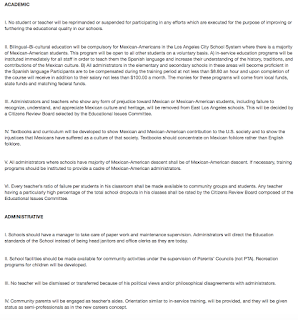Do they really care about us? (Blog Post #1)

"This film is not degrading to ANY one RACE, but pictorializes the injustices to ALL MANKIND" starts Michael Jackson's riveting and influential, They Don't Really Care About Us (1995).
In 1995, "King of Pop" Michael Jackson released his first album in four years. Michaels Jackson's, HIStory: Past, Present and Future Part 1 shared two CD's: The first containing old music and the second containing a compilation of new songs, where we find They Don't Really Care About Us. Jackson's main focus in the album was to focus on the many allegations that labeled him as a child molester, as well as those about his skin abnormality. This album is a compilation spread across multiple genres and is considered one of Jackson's most vulnerable works.
Though it wasn't as famous as his other songs, They Don't Really Care About Us was still featured in the top 10 songs of most countries and had two different music videos. Though it wasn't able to take full flight in the U.S. due to some of the songs derogatory terms (such as kike to refer to Jews) the song was only able to make it to number 30, as many news stations feared airing it.
The song is very controversial in that it brought to light two separate issues when taking a look at the same lyrics across the two separate videos. One meaning suggests that, because the the first video takes place in a Brazil Favela (slum), it was meant to highlight the lack of aid to to third world countries from the first world, as well as the country's inability to cater to the needs of its citizens. Though many saw it as Michael's way of highlighting the issue of social inequality and world poverty, many of the country's politicians were angered towards its disfavoring view of the country and acted against it. The second video, which has been named "The Prison Version" is known for its exposure of the dark parts of humanity. Jackson connects fictional images of minority prisoners with other actual gruesome images of starvation, poverty, war, police brutality, and hate groups. Michael Jackson says, "The song, in fact, is about pain and prejudice and hate is a way to draw attention to social and political problems".
Today, the song resonates as one of Michaels most powerful works. The song even became an anthem for the protests surrounding the Ferguson shootings. Michael Jackson, though world-renowned, faced discrimination and hate based on media manipulation and color of his skin. Nonetheless, the song stands as artistic monument that brings to light hate and corruption against the underrepresented and the almost taboo nature of humanity to fight against it.

I find it interesting that you chose to build your essay around a piece of music. It is impressive how with such short durations, a song and a couple music videos can effectively portray massive global issues and create such controversy. I wonder how the song and the videos demonstrate the role that the legal system plays in relation to the different issues (social inequality and world poverty and such) represented.
ReplyDelete